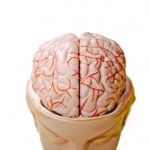Early Detection of Brain Degeneration: Key to Long Term Health
 The ability to impact neuro-degenertive disease is determined by early identification. When identified early, lifestyle strategies can be implemented that not only impact the potential progression, but also develop positive changes to help the brain maintain healthy function. The current conventional healthcare model offers very little hope for brain degeneration that has progressed to end-stage disease, such as dementia, Parkinson’s, and Alzheimer’s. Brain degeneration is a progressive condition. The only hope a person has is early detection so that significant changes can be made to avoid the horrors that lie ahead.
The ability to impact neuro-degenertive disease is determined by early identification. When identified early, lifestyle strategies can be implemented that not only impact the potential progression, but also develop positive changes to help the brain maintain healthy function. The current conventional healthcare model offers very little hope for brain degeneration that has progressed to end-stage disease, such as dementia, Parkinson’s, and Alzheimer’s. Brain degeneration is a progressive condition. The only hope a person has is early detection so that significant changes can be made to avoid the horrors that lie ahead.
The incidence of brain disorders is on the rise. Not only do one in eight senior citizens develop Alzheimer’s but also one in eight children are diagnosed (or misdiagnosed) with a brain development disorder, such as autism, ADD, and ADHD. It is estimated, world wide that 24 million people have dementia. This number is predicted to double every 20 years. Anxiety disorders, learning disabilities, and depression are more prevalent today, while symptoms of poor brain health like sleep disorders, brain fog, mild depression, moodiness have become almost commonplace. Antidepressants (which will fix nothing and do more harm to the brain) are now the second most commonly prescribed medication in the U.S..
Increased age alone is a major factor for all neuro-degenerative diseases, and the
